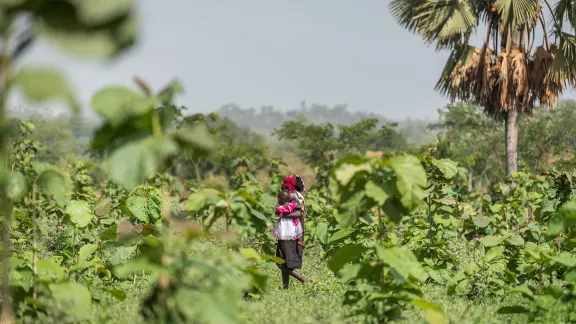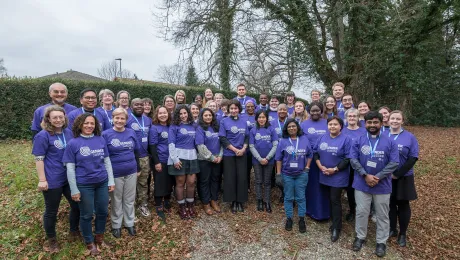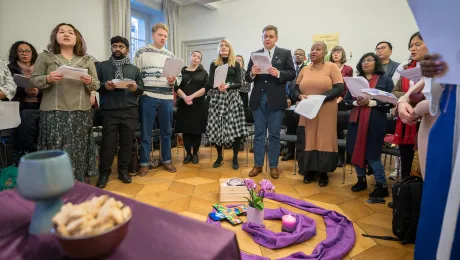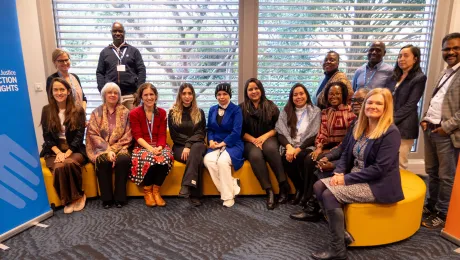The female face of climate displacement
The female face of climate displacement
Women's crucial role in addressing the climate crisis and strengthening local community resilience
During the UNHCR Annual Consultations with NGOs 2022, the LWF and its humanitarian partners present this online side event.
This webinar contributes to the debate on the implementation of the 2021 UNHCR Strategic Framework for Climate Action by raising awareness and sharing our organizations' challenges, good practices, and grassroots experiences on:
- Locally led approaches to enhance mitigation, local community resilience, and adaptation
- Addressing the protection needs of people displaced by environmental and climate-induced events, especially women
In addressing these challenges, we use the special lens of women.
Women represent 80 percent of climate-displaced people. In their communities, they are already experiencing serious climate and environmental impacts on food, water, land, and services necessary for human health, livelihoods, settlement, and survival.
Women often face additional discrimination in policy and practice. Enhanced legal protection at all levels is therefore urgently needed.
Women are also, and above all, a resource for bold climate action.
They are the first providers of protection, care for nature, and sustainable development activities in their local communities.
Their traditional knowledge contributes to biodiversity preservation and their access to education and training allows communities to promote alternative and environmentally friendly production patterns.
Additionally, local-to-local knowledge exchange of displaced women in host communities can lead to better natural resource management.

Uganda: A woman walks with her child through a tree plantation field in the Palorinya refugee settlement in the West Nile area of northern Uganda. The settlement hosts more than 128,000 refugees who arrived following the eruption of war in South Sudan in 2013. The refugees and host communities in the area receive support from the LWF World Service program in Uganda. Photo: LWF/Albin HillertÂ


